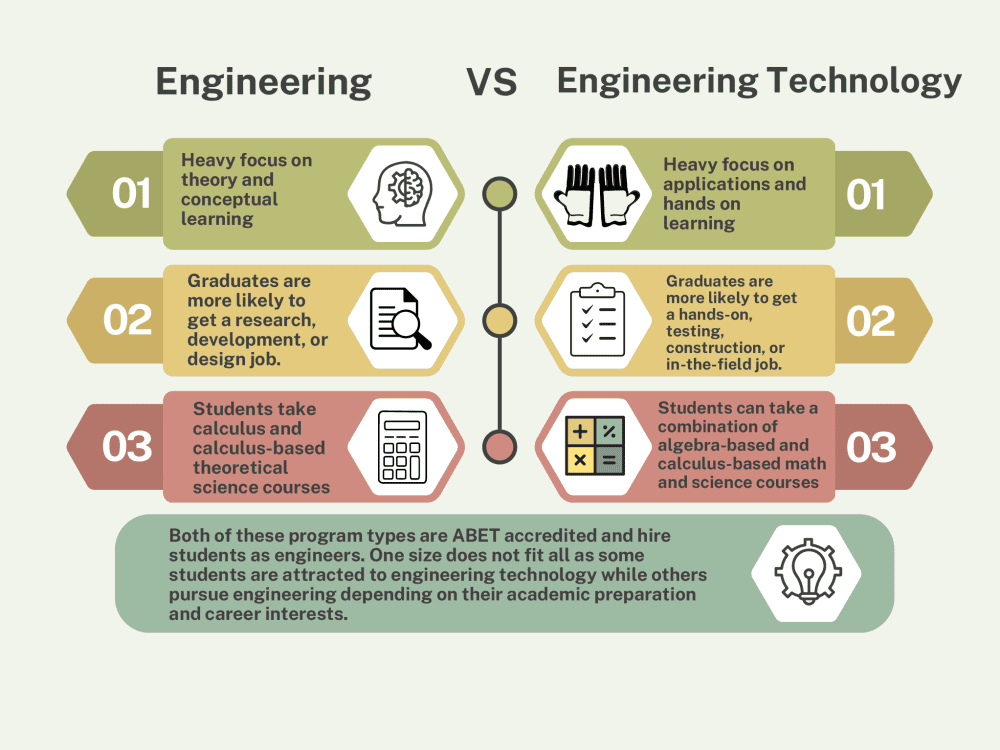Engineering vs. Engineering Technology
Prospective students and parents often ask, what is the difference between Engineering Technology and Engineering. Both Engineering Technology and Engineering are challenging programs; however, there are significant differences between the two programs. One size does not fit all as some students are attracted to Engineering Technology while others pursue Engineering depending on their academic preparation and career interests.
